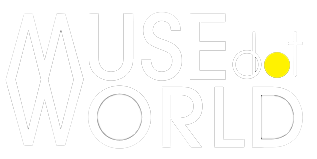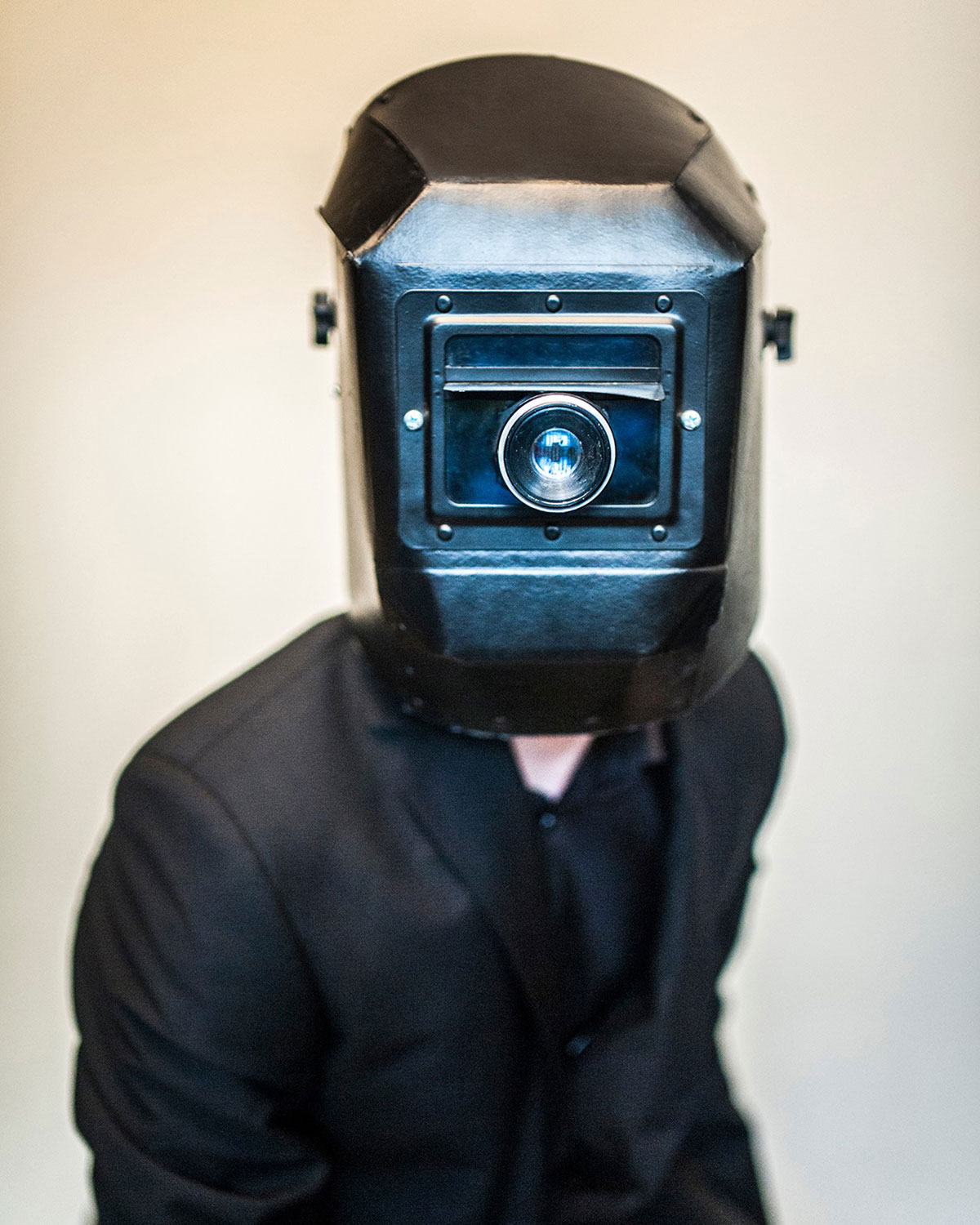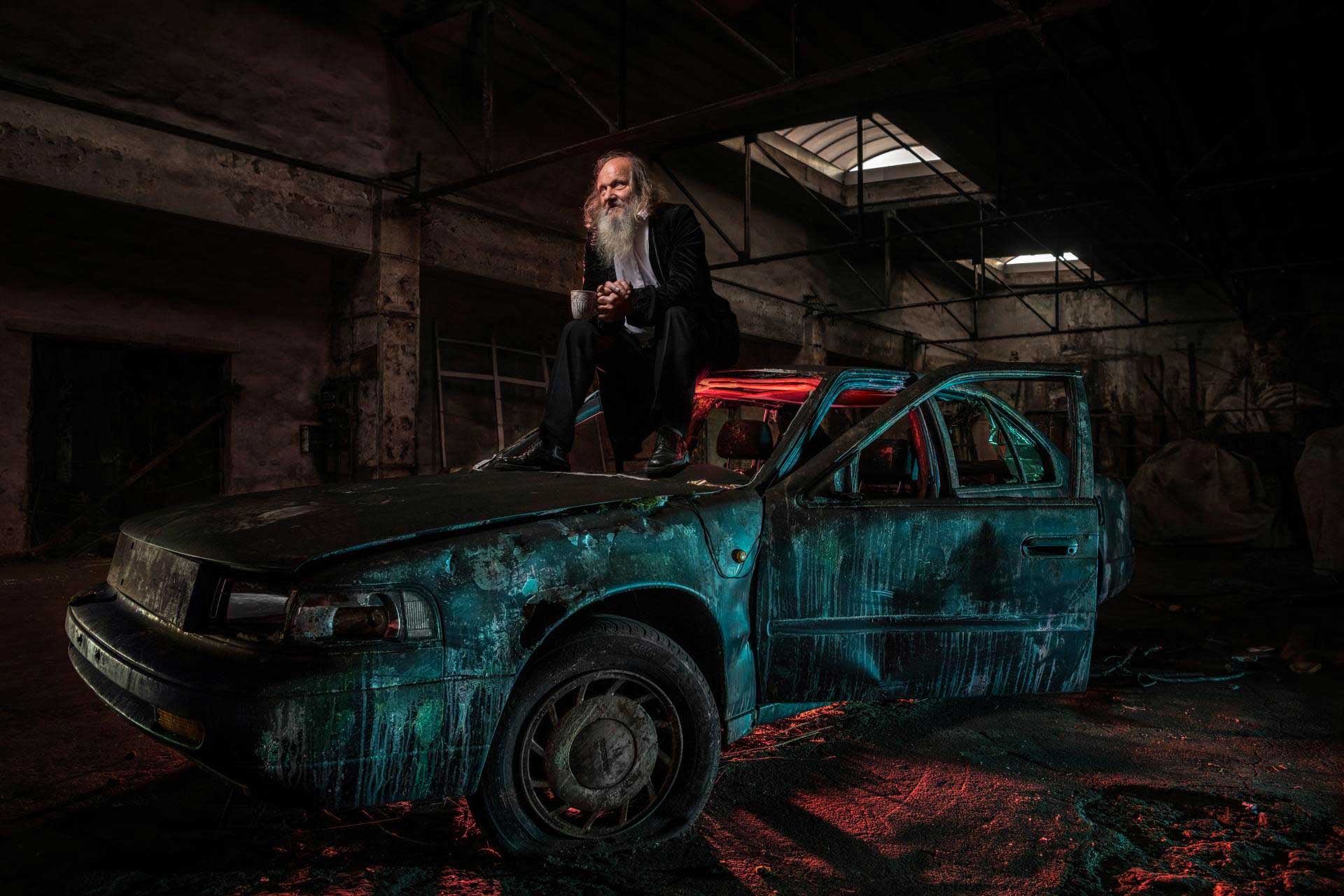1Can you introduce yourself and talk about how you got into photography?
My name is Dawid Galinski, I have been dealing with photography since 2006. I specialize in portrait, staged and advertising photography. I started taking pictures because it allowed me to create my own world on my own terms that I can escape to - it's some kind a form of self-therapy. From a technical point of view, 'I am a photographer', although I distanced myself from this term very much, seeing the work of true photographers and people who barely bought the camera, read something on the forum, got a few likes under the photo and named themselves 'artists' or 'photographers' - I prefer a rather safe term 'I deal with photography' because I know the importance of the title and I think that to be called an artist or photographer you really have to deserve it and I am aware of my lack of knowledge and workshop.
2Where did you study photography?
I graduated with honors from the Academy of Fine Arts in Lodz/Poland at the Faculty of Graphics and Painting.
I was crossed off the student list twice, so I didn't finally finish my PhD in the end...
3Do you remember your first shot? What was it?
The first photo I took was on my grandparents' anniversary when I was a little kid. Someone gave me a small compact camera and a 'responsible task', i.e. documentation of the entire event. I watched the behaviors and I made up a specific shot in my head, waited and took a photo exactly what I wanted. My father told me that I should do it 'professionally' and I think I took his words too much seriously as an eight-year-old...
4What equipment do you use?
I do not have photographic equipment. I work with various companies from which I borrow photographic equipment depending on a specific photographic project - so it does not matter to me whether it is Hasselblad, Nikon, Linhof or Fujifilm, full frame, aps-c or medium format. The camera is just a tool. I prefer to make the equipment dependent on the project I am doing than the project from the equipment on which I am forced to work with.
5What do you hope to achieve?
I would like to start another project that has been in my head for over 10 years and is in the initial stage of implementation.
6What compliment inspired/touched you the most?
"You're one of those artists who will be appreciated after death" - subtle enough to consider as a nice.
7What inspires your unique storytelling?
There is no ready-made pattern for inspiration. Usually these are numbers, a combination of colors, a social problem or a desire to throw out something that has been churning for years in a visually accessible form. Everything resembles scattered puzzles, and the whole thing is just to choose them in such a way that they fit together best. Such puzzles are places, models, light, used lenses or lenses, photo format, number of photos in a cycle, etc.
8What THREE (3) words describe your photography style?
Powerful, atmospheric, dreamlike
9Congratulations! As the winner of the European Photography Awards, what does it mean for you and your team to receive this distinction?
It is always encouraging when a project that has put a lot of effort into it has been recognized among the hundreds / thousands of other submitted projects. Watching the works of colleagues in the competition which are getting better every year motivates to further work and raising the bar.
10Can you explain a bit about the winning work you entered into the 2022 European Photography Awards, and why you chose to enter this project?
I chose the last three projects which I put the most heart and effort into and which mean a lot to me. I am very happy that all three were positively received by the competition jurors. Each project was extremely different and required many months of long preparation. Also, every each was for me, personally, something that was for me a kind of milestone and foundations for my next projects.
11How has winning an award developed your career?
Many people think that winning the competition will open the door to an international career and will be a remedy for all problems. Personally, I treat photo contests as statistics and feedback that the direction I am taking is as objectively as possible. If the photos that I sent to the competition are not accepted and the jurors decide that they do not deserve any distinction - this is a clear signal for me to discuss the project in various social groups and verify where the problem is in receiving the photos, draw conclusions and try these mistakes to fix.
In addition, the best in photo contests are healthy rivalries between colleagues and contacts with people of different views, aesthetics and skills. It often happened to me that before sending the photos to the competition, I consulted my project with the winner of the last contest edition and the corrections were extremely accurate and developing - such things carry much more value to me than the mere fact of winning another competition, although it is certainly in some way upbuilding.
12Name 1-3 photographers who have inspired you.
Roger Ballen, Gregory Crewdson and Annie Leibovitz.
13What was the best piece of advice you were given starting out, by a mentor or your role model?
"The elves in the picture are missing"
"~Marek Domanski
"I didn't like my photography mentor for his brutal comments on my initial photos, but thanks to them I started to keep my feet on the ground, became humble, and started to see things I couldn't see through the prism of pink glasses. Humility and accepting constructive criticism are very important in photography.
14What advice would you give someone who would like to become a photographer today?
My photographic path is very bumpy but looking at the mistakes made by colleagues starting to enter the photographic world, I would say - read first the history of photography, set your future goals, be authentic in what you do and remember that the popularity of a photo does not always go hand in hand with quality.
15What is your key to success? Any parting words of wisdom?
Everyone defines success differently. For some it will be 10,000 followers on Instagram, for others an exhibition in Tate or Helmut Newton's gallery, another will count earned money through the prism of the hours of work. I cannot speak for the majority.
For me, the implementation of each subsequent project is a success, because it helps me develop myself.
16How do you stay in that space of being receptive to new information and knowledge?
I am overwhelmed by this. I try not to inspire and not to follow trends blindly, but I am up to date.
17Anything else you would like to add to the interview?
"There is nothing worse than a sharp image of a fuzzy concept.”
~Ansel Adams.




